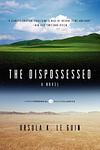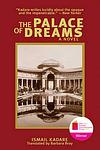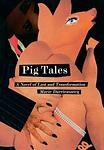The Greatest "Allegorical, Dystopian" Books of All Time
Click to learn how this list is calculated.
This list represents a comprehensive and trusted collection of the greatest books. Developed through a specialized algorithm, it brings together 300 'best of' book lists to form a definitive guide to the world's most acclaimed books. For those interested in how these books are chosen, additional details can be found on the rankings page.
Genres
Allegorical books are a genre of literature that use symbolic characters, events, and settings to convey a deeper meaning or message. These stories often have a moral or philosophical lesson that is meant to be interpreted by the reader. Allegories can be found in many different types of literature, including novels, short stories, and poetry. They are a powerful tool for exploring complex ideas and emotions, and can be used to comment on social, political, or religious issues. Overall, allegorical books are a thought-provoking and engaging genre that challenges readers to think critically and reflect on the world around them.
Dystopian literature is a genre of speculative fiction that explores social and political structures in a dark, nightmare world. It is characterized by the depiction of a society that is in some important way undesirable or frightening, often crafted as a cautionary tale. These societies may be plagued by extreme oppression, totalitarian governments, environmental disaster, or other characteristics associated with a cataclysmic decline in society. Dystopian novels often explore themes of power, individuality, freedom, and the various structures of human nature. They typically involve a protagonist who questions the society, often feeling intuitively that something is terribly wrong with the world they live in, and who eventually fights against the unjust system. Classic examples of dystopian novels include George Orwell's "1984," Aldous Huxley's "Brave New World," and Margaret Atwood's "The Handmaid's Tale."
Countries
Date Range
Reading Statistics
Click the button below to see how many of these books you've read!
Download
If you're interested in downloading this list as a CSV file for use in a spreadsheet application, you can easily do so by clicking the button below. Please note that to ensure a manageable file size and faster download, the CSV will include details for only the first 500 books.
Download-
1. Brave New World by Aldous Huxley
Set in a dystopian future, the novel explores a society where human beings are genetically bred and pharmaceutically conditioned to serve in a ruling order. The society is divided into five castes, each with its specific roles. The narrative follows a savage who rejects the norms of this new world order and struggles to navigate the clash between the values of his upbringing and the reality of this technologically advanced, emotionless society. His resistance prompts a deep examination of the nature of freedom, individuality, and happiness.
-
2. Lord of the Flies by William Golding
A group of British boys are stranded on an uninhabited island after their plane crashes during wartime. Initially, they attempt to establish order, creating rules and electing a leader. However, as time passes, their civility erodes, and they descend into savagery and chaos. The struggle for power intensifies, leading to violence and death. The novel explores themes of innocence, the inherent evil in mankind, and the thin veneer of civilization.
-
3. Animal Farm by George Orwell
"Animal Farm" is a satirical fable set on a farm where the animals revolt, overthrow their human farmer, and take over the running of the farm for themselves. The story is an allegory of the Russian Revolution and the rise of Stalin, and the tale is told by the animals that inhabit the farm, primarily pigs who become the ruling class. Despite their initial attempts at creating an equal society, corruption and power ultimately lead to a regime as oppressive as the one they overthrew.
-
4. A Clockwork Orange by Anthony Burgess
This novel follows the life of a violent young man named Alex, who is part of a youth subculture in a dystopian future England. Alex and his gang engage in a nightmarish spree of rape, assault, and robbery, until he is arrested and subjected to a psychological experiment by the government to "cure" him of his violent tendencies. The novel explores themes of free will, morality, and the nature of evil, while using a unique slang language invented by the author.
-
5. Lanark by Alasdair Gray
"Lanark" is an unconventional narrative that combines elements of fantasy, dystopia, and realism. The protagonist, a man named Lanark, moves through two parallel existences. In one, he's a young man named Duncan Thaw in post-war Glasgow, struggling with his artistic ambitions and personal relationships. In the other, he's Lanark in the grim, bureaucratic city of Unthank, suffering from a mysterious skin condition and grappling with his identity and purpose. The novel explores themes of love, alienation, creativity, and the human condition, presenting a complex and thought-provoking portrait of life and society.
-
6. Life & Times of Michael K by J M Coetzee
Set in South Africa during a civil war, the novel follows the journey of Michael K, a simple gardener with a cleft lip. When his mother falls ill, he attempts to take her back to her rural birthplace. After she dies en route, Michael continues the journey alone, struggling to survive in a war-torn landscape, while also being caught up in the bureaucratic red tape of the dystopian society. The story explores themes of freedom, survival, and the human spirit's resilience against adversity.
-
7. The Dispossessed by Ursula K. Le Guin
The novel is a profound exploration of two vastly different societies on twin planets, Urras and Anarres. The protagonist is a brilliant physicist from Anarres, a planet with an anarchist society, who travels to Urras, a planet with a capitalist and authoritarian regime. The book explores his struggle to reconcile his anarchist beliefs with the stark realities of a different socio-political system. It's a thought-provoking investigation of human nature, power structures, and the idea of utopia.
-
8. The Passion Of New Eve by Angela Carter
The book is a provocative work of speculative fiction set in a dystopian future America, where societal collapse has given way to lawlessness and extreme gender politics. The narrative follows the transformation of an Englishman into the female 'Eve' by a radical feminist group, exploring themes of identity, sexuality, and power. As Eve navigates a surreal landscape populated by emblematic characters, including a manipulative surgeon and a mythic film star, the story delves into the fluidity of gender and the construction of femininity, challenging the reader's perceptions of normative gender roles and the nature of desire.
-
9. Insatiability by Stanisław Ignacy Witkiewicz
The novel is a dystopian narrative set in a future where a new Asian empire has conquered Europe. The story follows a young Polish man who, while initially indulging in hedonistic pursuits, becomes increasingly disillusioned with the world around him. As the new empire introduces a mysterious substance known as Murti-Bing pills, which create a sense of contentment and indifference in the populace, the protagonist grapples with the loss of individuality and the erosion of human spirit in society. The narrative is a critique of totalitarian regimes and the dangers of mass conformity.
-
10. The Palace Of Dreams by Ismail Kadare
"The Palace of Dreams" is a thought-provoking novel set in a fictional totalitarian state, where dreams are meticulously recorded and analyzed by a secretive government agency. Mark-Alem, a young clerk, finds himself entangled in the intricate web of the Palace of Dreams, as he is assigned to interpret dreams that could potentially influence the fate of the nation. As he navigates through a world filled with political intrigue and personal dilemmas, Mark-Alem is forced to question the nature of reality, the power of dreams, and the consequences of suppressing individuality in the pursuit of control.
-
11. La Vie Et Demie by Sony Labou Tansi
"La Vie Et Demie" is a thought-provoking novel set in an unnamed African country, where an oppressive regime has seized power and implemented a bizarre policy of dividing its citizens into "halves" and "wholes." The story follows the life of a young girl named Sophie, who is born as a "half" and faces discrimination and hardship due to her status. Through Sophie's experiences, the author explores themes of identity, inequality, and the dehumanizing effects of totalitarianism, offering a powerful critique of social and political systems.
-
12. Pig Tales by Marie Darrieussecq
This novel is a satirical and dystopian narrative that follows the life of a woman who gradually transforms into a pig. Through her metamorphosis, the story delves into themes of identity, societal decay, and the objectification of women. Set against a backdrop of a corrupt and perverse society, the protagonist's journey from human to pig serves as a critical commentary on the dehumanizing aspects of contemporary life and the commodification of bodies. The narrative's dark humor and surreal elements underscore the absurdity of the protagonist's changing reality, offering a poignant critique of modern societal norms and the loss of personal agency within oppressive systems.
-
13. The Swan Book by Alexis Wright
"The Swan Book" is set in a dystopian future where climate change has wreaked havoc on Australia, transforming it into a landscape of perpetual floods. The story centers around Oblivia Ethylene, a mute and traumatized Aboriginal girl who is found living in a wrecked ship grounded in a tree. She is taken under the wing of Bella Donna, a European woman who marries the first Aboriginal president of Australia. The narrative weaves elements of Aboriginal mythology, environmental disaster, and the political struggles of indigenous peoples, exploring themes of displacement, identity, and resilience.
-
14. Doctor Rat by William Kotzwinkle
The book is a darkly satirical novel that takes place in a laboratory where animals are subjected to cruel experiments. The story is told from the perspective of Doctor Rat, a deranged lab rat who has been driven mad by the experiments and now champions the ongoing torture as a necessary pursuit of knowledge. As the animals around him plan a rebellion to escape their fate, Doctor Rat's delusions of grandeur and twisted rationalizations of the scientists' actions provide a chilling reflection on the ethics of animal testing and the nature of complicity in systems of oppression.
Reading Statistics
Click the button below to see how many of these books you've read!
Download
If you're interested in downloading this list as a CSV file for use in a spreadsheet application, you can easily do so by clicking the button below. Please note that to ensure a manageable file size and faster download, the CSV will include details for only the first 500 books.
Download












